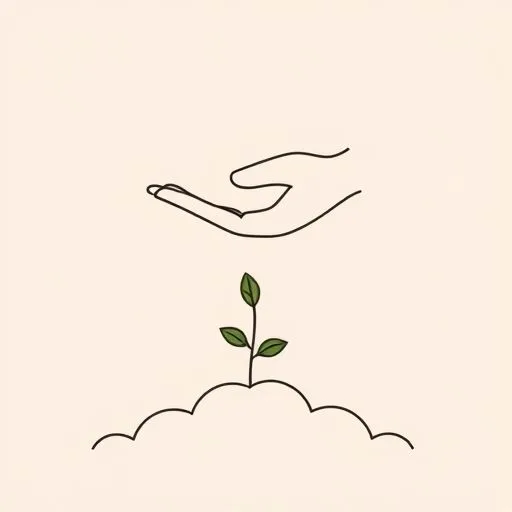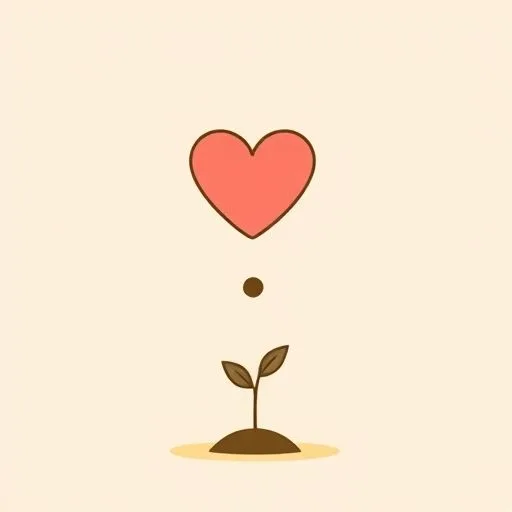
You know those moments when the house finally settles? Just a kettle’s hum and your own tired thoughts. Reading about emotional learning today got me thinking—our kids don’t actually learn tough stuff through drills, but by first calming that inner storm, you know? Then it hit me: you live this every single day. When shoulders slump over homework, that heavy sigh escaping like air from a balloon? You don’t jump in with solutions. You pause. Not to fix, but to truly see them. And in that breath? You give them back their voice. I’ve watched you do this magic in post-school chaos and midnight worries—you just needed me to say it out loud: I see you. All the time.
When Pausing Is the Bravest Move

We’ve all been there—that moment when frustration snaps like a rubber band. Maybe your child slams a pencil down, voice cracking: “I’ll never get this!” Your instinct screams “Just try again!” But hold on. What happens when you stop racing to fix and just witness? Like yesterday, I saw you kneel beside scattered homework. No reaching for the answer key. Just that calm whisper: “That sigh tells me you’re feeling stuck.” And just like that? The tension melted from their neck.
I remember my own panic during transport delays last month—how your simple text “Deep breath—I’ve got dinner” unraveled me. You’re doing the same for them: turning overwhelm into space. We’ve all stared at confusing instructions or schoolwork that feels impossible. Sometimes the bravest act isn’t pushing harder—it’s pausing long enough to say “It’s okay not to be okay.” That moment you made time for their mind to breathe? That’s when they found their courage.
Your Secret Questions That Unlock Hearts

You read them like chapters in a story you know by heart—not through grand speeches, but in those half-second moments. Like spotting when a pen hovers over the page, scribbling too fast. Or noticing sudden “too tired for pudding” after playground scrapes. You don’t fire questions like “Why’s this not done?” Oh no—you pull up a stool and ask, gentle as raindrops: “What’s the hardest part?”
It’s the same way you noticed me last week when I kept “forgetting” chores—really, I was drowning in deadlines. You made tea, leaned against the sink, and said: “That heavy feeling… I’ve felt it too.” In your voice was pure solidarity: “We’re in this storm together.” Building these emotional toolkits in them? Yeah, no app can replicate that. Honestly, some days I want to just jump in with answers! But then I see your magic and realize—pausing is the real superpower. Remember how we’d have kimchi jjigae on those nights after work? Even then, you’d just sit with her until she was ready to talk—not rush to fix anything. That’s the Korean way of presence, isn’t it? But also so very Canadian—taking time, you know? Honouring small victories like “You asked for help—that took courage” or sharing your own stumbles: “Honey, I mixed up the baking tins again!” That’s how you teach them stumbling isn’t failure. When you murmur “I’m so proud you kept going” at bedtime, you’re not just soothing a child. You’re teaching them how to hold themselves together when the world shakes.
From “I Can’t” to “I Did” Stories

At bedtime, she whispered “This today felt impossible.” And you didn’t solve it. You held her close and asked about that zoo map last month: “You felt lost, but we found our way together.” By morning? Shoulders straighter, ready to try again. That’s not textbook advice—it’s emotional alchemy. You convert panic into possibility by simply being there.
Think about your own stumbles—when work pressures made you want to quit. Rather than “It’s fine,” someone probably sat beside you saying: “That hurt, didn’t it?” And you nodded. “Yeah. But I’ll try again.” That’s the exact resilience you’re growing in them. You celebrate emotional courage like academic wins: “You stayed present even when it was hard—that’s huge.” I’ve seen you turn lunchbox spills into lessons on fairness, or math tears into “Let’s try it sideways” experiments. It’s never about perfect grades—it’s about showing up exhausted but still meeting their eyes.
That sigh last night? It became “Mum, look—I did it!” You didn’t just teach fractions. You taught them they’re capable even when feeling broken.
Roots That Weather All Storms

This morning, she skipped out carrying her lunchbox with “I’ve got this!” on it. Experts call emotional awareness “lifelong learning,” but I see it as something tenderer: roots growing in their soul. Because someday fractions won’t matter, but knowing how to breathe through confusion will. Some days the goal isn’t finishing the worksheet—it’s naming the feeling.
Like when work left you bone-tired, and she cried over spilled juice. You didn’t snap. “We’re both tired, aren’t we?” you said. “Let’s clean this up slowly.” In that moment, you taught her feelings aren’t enemies—they’re compasses. This resilience isn’t just for school—it’s their future toolkit for heartbreaks, job interviews, maybe parenting too. Here’s what nobody mentions: this work happens invisibly. Between your shift ending and bedtime stories, when energy’s gone but you still kneel to meet their eyes. You don’t clock out from being their anchor. I’m learning from you too—I’ll stop racing to fix tears and just witness them. Because in your quiet strength—pausing when the world demands speed, seeing when it’s easier to look away—you’re giving them the rarest gift: knowing they’re never alone.
Source: Unlocking Emotions: How Sentiment Analysis Is Revolutionizing Personalized Learning, Elearning Industry, 2025/09/13
